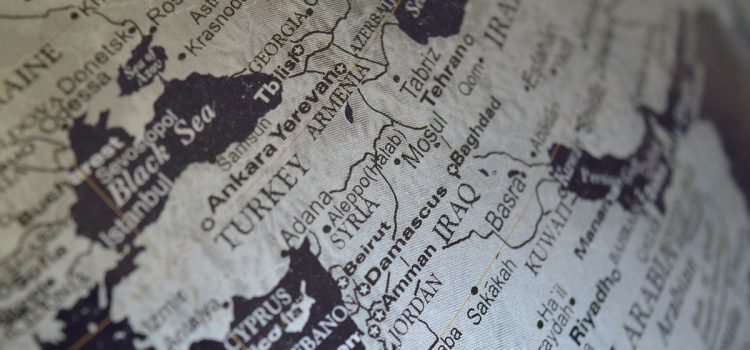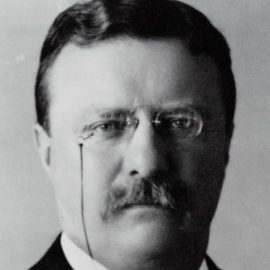

This article is an excerpt from the Shortform book guide to "Battlegrounds" by H. R. McMaster. Shortform has the world's best summaries and analyses of books you should be reading.
Like this article? Sign up for a free trial here.
What caused the Islamist movement and sectarian conflict in the Middle East? How has U.S. policy failed in the region?
In his book Battlegrounds, General H. R. McMaster explains the Middle East’s tangled history and the motivations of Iran, in particular, to disrupt its Arab neighbors. He provides his analysis of the U.S.’s bungled approach to diplomacy and military action in the region.
Keep reading for McMaster’s take on U.S. foreign policy in the Middle East.
U.S. Foreign Policy in the Middle East
In the Arab world, the clash between secular and Islamist rule has made the region a hotbed of instability. While the Middle East’s sectarian violence is rooted in divisions that are centuries old, it’s fueled today by agitating factors (such as radical Islamist groups and the Iranian government) with vested interests in maintaining the chaos. McMaster provides his analysis of U.S. foreign policy in the Middle East in the historical context of the region.
| The Crossroads of the World Though McMaster keeps his focus on the last hundred years, the Middle East has served as a global trade route for most of recorded history. In The Silk Roads, Peter Frankopan explains the geopolitical importance of the region going back to the Persian Empire, the most advanced nation of its age. Throughout the Roman era and the Middle Ages, the Middle East was a vital corridor for the flow of goods and ideas between Europe, India, and China, enriching the Persian Empire on its eastern border and the Byzantine Empire to the west. In between these two states, the tribes of Arabia proved fertile ground for the birth of Islam in the 7th century CE. The new religion united the Arabs into a force that conquered Persia, North Africa, and Iberia (present-day Portugal and Spain). The success of the Muslim conquest and the wealth that it brought gave birth to the idea of an Islamic caliphate. One such kingdom, centered in Baghdad, economically united parts of Asia, Africa, and Europe and preserved much ancient knowledge that was lost in the Post-Roman West. |
Over the last century, Middle Eastern nations have witnessed the fall of every system of government, from colonialism to monarchies, dictatorships, and theocracies. McMaster says the Islamist movement developed as a response to corrupt secular institutions and dictators. However, the theocratic movement to power reignited ancient bitterness between Sunni and Shia practitioners of Islam. In countries such as Egypt and Iraq, dictators kept a lid on Sunni-Shia conflict while perpetrating abuses of their own. In non-Arab Iran, the Shah’s repression of religion led to the rise of a Shiite Islamist countermovement, led by Ayatollah Khomeini, which toppled the former government and set up the preeminent theocratic state.
| The Rise of Islam in the Middle East Many people in the U.S. and Europe equate the Middle East with Islam, but historically this wasn’t always the case. Though Muslim rulers achieved political dominance of the region in the 7th century CE, Islam did not become the majority religion until between the 12th and 14th centuries. In Christian Martyrs Under Islam, Christian C. Sahner presents evidence that the transition was more gradual and peaceful than earlier historians believed. McMaster’s focus on the past 100 years reflects the fact that Islam didn’t become politicized until the 20th century, as Middle Eastern countries shook off colonial European rule and their people became disenchanted with attempts to westernize their societies. The turning point for the Islamist movement was the Arab world’s shocking military defeat by Israel during the Six Day War of 1967. The war shook public confidence in the secular governments of Egypt, Syria, and Jordan, and paved the way for the growth of Islamism as a rival political ideology. |
The Modern Middle East
Today, the Middle East is still reeling from the effects of the war between Iran and Saddam Hussein’s Iraq, a war that cost half a million lives and rekindled Sunni-Shia and ethnic divisions. McMaster argues that Iran’s conservative leaders harbor a deep hatred for the whole Arab world and seek to sow discord throughout the Middle East. They do this by providing funding and support for terrorist groups, both Shia and Sunni. Iran’s leaders also make use of the false narrative that the Shah was a U.S. puppet to direct the Iranian people’s attention outward and solidify the government’s grip on power internally.
(Shortform note: The Modern War Institute at the West Point Military Academy presents a different take on the Iranian government’s motivations. It contends that Iran sees itself as engaged in a primarily defensive war against the U.S., Israel, and other neighboring states. Iran’s leaders know that direct military engagement would be disastrous. So, instead, they sponsor cyberattacks and other forms of asymmetric warfare. Their end goal, according to some analysts, is to diminish American and Israeli power without crossing the threshold into a conventional war.)
Meanwhile, the removal of secular dictatorships, such as in Iraq by the U.S. invasion and in other countries during the Arab Spring movement, had the unintended side effect of uncorking the bottle of sectarian conflict. McMaster affirms that there are many Arab leaders working to end the cycle of violence but that they face resistance on every side from radical groups motivated by revenge and fanaticism. In the Middle East, the U.S. has squandered many chances to build coalitions and protect democratic governance, while instead focusing on military objectives as a way to limit its exposure in the region. By trying not to get involved in “another Vietnam,” the U.S. eschewed long-term political commitments that may have been more beneficial in the long run.
McMaster insists that the U.S.’s interventions in the Middle East should have been part of a long-term plan to coordinate military, diplomatic, and humanitarian missions. The U.S. and its allies could have enabled economic development and encouraged new governments to include the voices of ethnic and religious minorities. Instead, after the realization that military action alone achieved little, the U.S. resigned itself to withdrawing forces from the region, believing that doing so would help bring an end to the conflict. This view is also self-centered in that it assumes the U.S. is the reason behind the region’s problems in the first place.
| Paths Forward in the Middle East The Brookings Institution presents a starkly different analysis than McMaster’s of the U.S.’s Middle Eastern prospects. They suggest that the dual economic shocks of Covid-19 and falling oil prices will further destabilize the region while rendering any U.S. economic sanctions moot against nations such as Iran. Brookings argues that the U.S. should diminish the scope of its military presence while increasing its diplomatic efforts to resolve regional conflicts. The nonpartisan Middle East Institute suggests its own policy recommendations for the U.S. in regard to the region’s crisis points. In particular, finding a way to pivot the U.S.’s relationship with Iran is crucial. They point out that Iran’s leadership may soon go through a period of transition during which the U.S. will have an opportunity to encourage reforms that will favor the Iranian people. In Iraq, the U.S. should invest in education, assist in the fight against corruption, and help strengthen the country’s economy. |

———End of Preview———
Like what you just read? Read the rest of the world's best book summary and analysis of H. R. McMaster's "Battlegrounds" at Shortform.
Here's what you'll find in our full Battlegrounds summary:
- Why the U.S. has lost influence on the global stage
- The bad assumptions that cloud U.S. foreign policy
- Strategies the U.S. should adopt in order to help defend the free world






